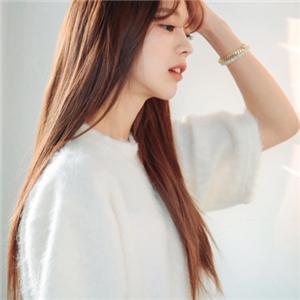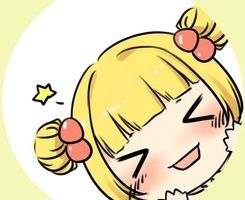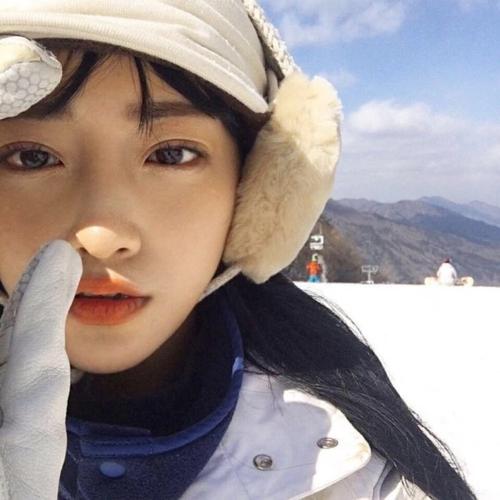Happy Lantern Festival !
正月是农历的元月,古人称夜为“宵”,所以称正月十五为元宵节。元宵节又称为“上元节”。按中国民间的传统,在这天人们要点彩灯、猜灯谜、吃元宵。小伙伴们知道元宵节相关的英语表达吗?一起来学习吧!
元宵节的意义
The Lantern Festival falls on the 15th day of the 1st lunar month. It is the first full moon of the new year, symbolizing unity and perfection.
元宵节在农历第一个月的十五号,它是新的一年的第一次满月,象征着团圆和美。
元宵节的起源
the Han Dynasty(206BC-220AD), Buddhism flourished all over China. One emperor heard that Buddhism monks would watch sarira , or remains from the cremation of Buddha’s body , and light laterns to worship buddha on the 15th day of the 1st lunar month, so he ordered to light laterns in the imperial palace and temples to show respect to Buddha on this day. Later, the Buddhist rite developed into a grand festival among common people and its influence expanded form the Central Plains to the whole China.
东汉明帝时期,明帝提倡佛教,听说佛教有正月十五日僧人观舍利,点灯敬佛的做法,就命令这一天夜晚在皇宫和寺庙里点灯敬佛,令士族和庶民都挂灯。以后这种佛教礼仪节日逐渐演变为民间盛大的节日。元宵节经历了由宫廷到民间,由中原到全国的发展过程。
元宵节的习俗
中国传统的过年,一般要持续到元宵节,元宵节一过也象征过年的结束,人们就要恢复正常的生产和生活了。 在元宵节期间,人们举行各种民俗活动,赏月、观花灯、猜灯谜、放烟花、舞龙灯、舞狮子、跑旱船、踩高跷、扭秧歌,普天同庆,其乐融融。 元宵节也成为中国诸多传统节日当中最热闹的一个,可以称为中国的“狂欢节”。
元宵习俗
guess the riddle 猜灯谜
play the dragon latern 耍龙灯
lion dance 舞狮子
a land boat dance 划旱船
stilt walk 踩高跷
yangko 扭秧歌
enjoy the beautiful laterns 赏花灯
set off fire works 放烟花
play couples game 对对联
have tangyuan/yuanxiao 吃汤圆/元宵
元宵节常用英语
the Lantern Festival 元宵节
rice glue ball 元宵
glutinous rice 糯米
lions/dragons dancing 舞龙/舞狮
guess lantern riddles 猜灯谜
play couplets game 对对联
enjoy beautiful lanterns 赏花灯
snuff 灯花
exhibit of lanterns 灯会
dragon lantern dancing 耍龙灯
walking on stilts 踩高跷
land boat dancing 划旱船
yangko/yangge dance 扭秧歌
beating drums while dancing 打太平鼓
drum dance 腰鼓舞
fireworks party 焰火大会
traditional opera 戏曲
variety show/vaudeville 杂耍
Lantern Festival’s temple fair 元宵庙会
colored lanterns’ temple fair 彩灯庙会
吃元宵
People will eat yuanxiao, or rice dumplings, on the Lantern Festival, so it is aslo called the “Yuanxiao Festival”, Yuanxiao also has another name, tangyuan. It is small dumpling balls made of glutionous rice with rose petals, sesame, bean paste, walnut meat, dried fruit, sugar and edible oil as filling. Tangyuan can be boiled, fried or steamed. It tastes sweet and has the meaning of reunion. So people eat them to denote union, harmony and happiness for the family.
民间过元宵节都会吃元宵。元宵由糯米制成,或实心,或带馅,馅有豆沙、白糖、山楂、各类果料等。食用时煮、炸、蒸皆可。起初,人们把这种食物叫作“浮圆子”,后来又叫汤团或汤圆,这些名称与“团圆”字音相近,取团圆之意,象征全家人团团圆圆和睦幸福。
猜灯谜
“Guessing lantern riddles”is an essential part of the Festival. Lantern owners write riddles on a piece of paper and post them on the lanterns. If visitors have solutions to the riddles, they can pull the paper out and go to the lantern owners to check their answer. If they are right, they will get a little gift. The activity emerged during people’s enjoyment of lanterns in the Song Dynasty (960-1279). As riddle guessing is interesting and full of wisdom, it has 
become popular among all social strata.
猜灯谜也是元宵节活动的一个基本组成部分。灯笼的所有者将谜语写在一张纸条上,然后将纸条展示在灯笼上。如果赏灯者猜出谜语,就将纸条取出,然后找灯笼所有者确认答案。打对的话,他们就可以领取一份小礼品。这个活动起源于宋朝(960——1279)。猜灯谜活动极富情趣和智慧,因此在全社会广受欢迎。
元宵是北方的叫法,它是以馅为基础制作的。 大致过程是先是拌馅料,和匀后摊成大圆薄片,晾凉后再切成比乒乓球小的立方块。然后把馅块放入像大筛子似的机器里,倒上江米粉,“筛”起来了。随着馅料在互相撞击中变成球状,江米也沾到馅料表面形成了元宵。做成的元宵江米粉层很薄、表面是干的,下锅煮时江米粉才吸收水份变糊。
汤圆是南方的叫法,它的做法类似包饺子。 先把糯米粉加水和成团),然后把做馅的各种原料拌匀放在大碗里备用(不须像做元宵那样切成小块)。汤团馅含水量比元宵多,这是两者的区别之一。包汤团的过程也像饺子,但不用擀面杖。湿糯米粉粘性极强,只好用手揪一小团湿面,挤压成圆片形状。用筷子(或薄竹片状的工具)挑一团馅放在糯米片上,再用双手边转边收口做成汤团。做得好的汤团表面光滑发亮。
元宵节经典句型
经典句型:
How shall we celebrate the Festival of Lanterns?
我们怎么庆祝元宵节呢?
A:How shall we celebrate the Festival of Lanterns?
甲:我们怎么庆祝元宵节呢?
B:Let’s enjoy the colorful lanterns in the evening.
乙:我们晚上去赏彩灯吧。
A:I prefer to go to the dragon dances.
甲:我更想去看舞龙。
We eat yuanxiao in this festival.
我们在这个节日吃元宵。
A:What 
do you eat in the Festival of Lanterns?
甲:你们在元宵节吃什么呢?
B:We eat yuanxiao in this festival.
乙:我们在这个节日吃元宵。
A:Is that the rice glue ball?
甲:就是用糯米粉做的元宵?
B:Yes, it’s delicious. We have other activities like the lantern riddles.
乙:是的,很好吃。我们还有其他的活动,比如猜灯谜。
A:it’s so interesting.
甲:真有趣。
元宵节祝福语
在元宵节来临之际,祝你平安,快乐,幸福。万事圆!
Wishing you peace, joy and happiness and everything all the best through Lantern !
致以热烈的祝贺和良好的祝福,元宵节快乐!
Warm greetings and best wishes for Lantern Festival!
快乐的元宵之际,谨致我的想念与祝福。
Thinking of you and wish you a Happy Lantern Festival.
愿你元宵节幸福无尽。
May Lantern Festival be filled with happiness for you .
猜灯谜是元宵节的传统项目,可猜么多灯谜,英文的你猜得中吗?
1
What letter is an animal?
哪个字母是一个动物?
2
What fruit is never found singly?
什么水果永远都不会是单数?
3
What never asks questions but gets a lot of answers?
什么东西永远不问问题但是却能得到很多?
4
What has a tongue but cannot talk?
什么东西有舌头但是却不会说话?
5
What has four eyes but cannot see?
什么有四个眼睛,但是看不见?
6
What’s full of holes but still holds water?
什么东西浑身是洞,却能装水?
7
Which month do soldiers hate?
军人最讨厌哪个月份?
8
What word is pronounced wrong, even by the best of scholars?
哪个单词即使是最好的学者来念都念错?
9
What is black when it’s clean and white when it’s dirty?
什么东西干净的时候是黑色的,脏的时候是白色的?
10
What is deaf and dumb but always tells the truth?
什么是聋哑的,但是却总是告诉我们真相?
11
Which is faster, hot or cold?
热和冷哪个速度更快?
12
What man cannot live in a house?
什么人不能住在房间里?
13
How do we know the ocean is friendly?
我们如何知道海洋是友善的?
14
What book has the most stirring chapters?
什么书有最动人的章节?
15
What building has the most stories?
什么建筑楼层最多?
16
When is your mind like a rumpled bed?
你的脑子什么时候像皱巴巴的床?
17
What is it that everybody does at the same time?
所有人同时在做的事情是什么?
18
What kind of water should people drink in order to be healthy?
为了保持健康应该喝什么水?
19
It has a head, but no neck. It has a body, but no warmth. NO feet, but can travel?
它有头,但没脖子;有身体,却没温度;没有脚,但是能旅行。它是什么?
20
What kind of dog doesn’t bite or bark?
什么样的狗不叫,也不咬人?
猜出几个啦?小编期待你们的答案哟~
— END —
《二语写作》正在征稿,欢迎国内外专家、学者和广大外语教师及研究者扫码入群赐稿!(详情见最后一条推送)
 微信扫一扫打赏
微信扫一扫打赏
 支付宝扫一扫打赏
支付宝扫一扫打赏



